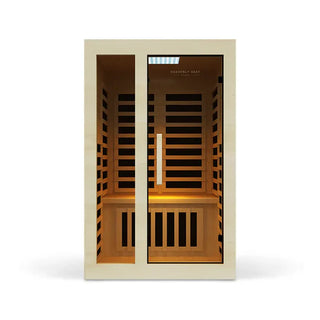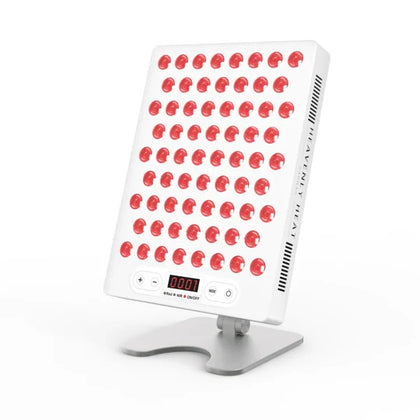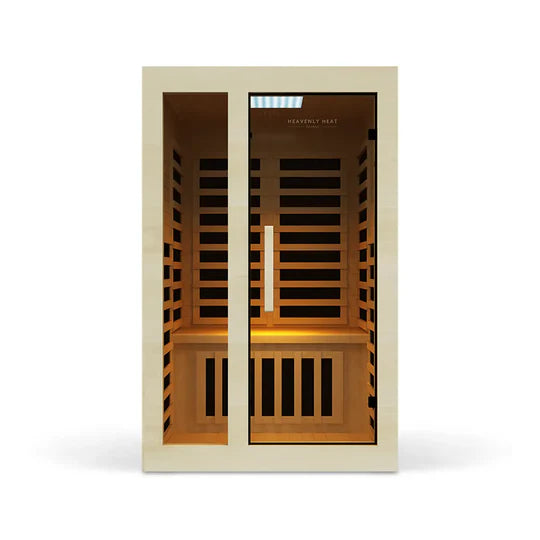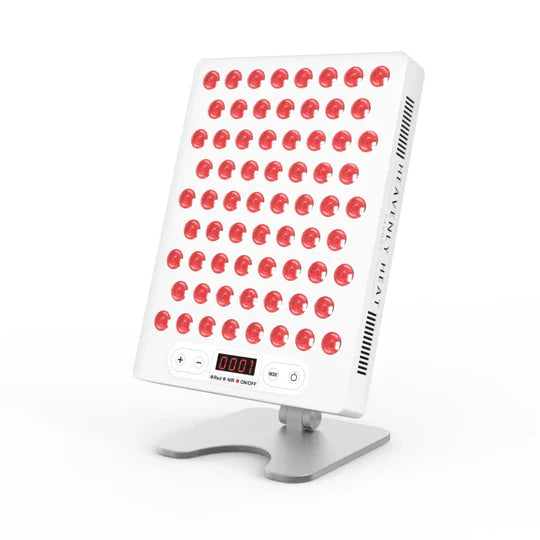Hot Tub Hydrotherapy Benefits: Why It’s More Than Just Relaxing

Imagine sinking into warm, bubbling water after a long day, feeling tension melt away. Hot tub hydrotherapy does more than relax your muscles it eases pain, reduces stress, boosts circulation, improves sleep, and even supports your immune system.
Discover how these simple sessions can transform your health and energy, making relaxation a powerful tool for wellness.
Table of contents
Key Takeaways
Relieve Muscle and Joint Pain: Soaking in a hot tub helps ease soreness and stiffness naturally.
Reduce Stress and Improve Sleep: Warm water relaxation calms your mind and promotes deeper rest.
Boost Circulation and Heart Health: Hydrotherapy enhances blood flow, supporting cardiovascular function.
Accelerate Recovery for Active Lifestyles: Warm water immersion helps muscles repair faster and reduces inflammation.
Strengthen Your Immune System: Regular hot tub use can stimulate white blood cells and enhance resilience.
Hot Tub Hydrotherapy Benefits
Relief from Muscle and Joint Pain
Hot tubs do more than make you feel relaxed, they can actually ease muscle and joint pain. When you soak in warm water, your blood flows better, muscles loosen up, and stiff joints start to move more easily.
People with shoulder problems who tried hydrotherapy felt less pain and moved more freely within the first week, compared to those doing regular exercises.
Another study on knee osteoarthritis showed that soaking in warm water reduced pain and helped joints work better over time, all without causing any harm.
Stress Reduction and Mental Relaxation
Soaking in a hot tub melts away stress and clears your mind by relaxing your muscles and calming your nervous system.
Warm water lowers tension and helps your body release feel-good hormones like beta-endorphins, while reducing stress hormones that make you anxious.
One study on women in labor found that hydrotherapy lowered anxiety and created a sense of calm.
Another review of 17 trials showed that hydrotherapy and balneotherapy helped adults feel less anxious and depressed. Regular hot tub sessions can give your mind the same peaceful break your body feels.
Improved Sleep Quality
Struggling with sleep? Research suggests that soaking in a hot tub may be a simple, natural way to improve rest.
A study published in A Journal of Bacomics found that bathing in warm water can influence core body temperature, which plays a key role in regulating the sleep-wake cycle.
Their results showed evening soaks were especially effective in helping people fall asleep faster and ease pre-sleep racing thoughts.
Similarly, findings reported in the Journal of Physiological Anthropology highlight that long warm baths raise body temperature more significantly than showers, and the subsequent cooling effect before bedtime makes it easier to drift off while also enhancing perceived sleep quality.
Beyond temperature regulation, regular hot tub use has been linked to deeper, more restorative sleep by reducing stress, relaxing muscles, and supporting melatonin production.
A review in the International Journal of Biometeorology further confirmed that hydrotherapy can improve sleep quantity and quality, though more clinical trials are still needed. Together, these findings show hot tub hydrotherapy is a powerful tool for better sleep.

Enhanced Circulation and Cardiovascular Health
Hot tub hydrotherapy offers powerful benefits for circulation and heart health, supported by clinical research.
Immersion in warm water gently dilates blood vessels, improving blood flow and supporting the body’s natural healing processes.
Studies show that regular hydrotherapy, typically 30–60 minutes, three times a week, can reduce blood pressure and resting heart rate while improving overall heart function and daily quality of life, especially for people with cardiovascular challenges.
These effects are explained by several mechanisms: hydrostatic pressure shifts blood from the limbs to the chest, boosting venous return and stroke volume, while buoyancy reduces strain on the heart and joints, making activity more comfortable.
Water temperature and immersion time also matter. Warm water promotes relaxation and circulation, while shorter immersions of 10–15 minutes are generally the safest and most effective for recovery.
By lowering vascular resistance, enhancing cardiac output, and improving autonomic balance, hydrotherapy provides a gentle but powerful way to support cardiovascular health while offering soothing relaxation.
Detoxification and Skin Health
Hot tub hydrotherapy raises body temperature and improves circulation, which supports detoxification.
Sweating opens pores to help clear impurities and reduce acne. Warm water and increased blood flow may ease skin conditions such as eczema or psoriasis.
Better circulation also delivers nutrients and oxygen to the skin, promoting a healthier appearance with regular use.

Recovery for Athletes and Active Lifestyles
Hot tub hydrotherapy is more than relaxation, it’s a powerful recovery tool for athletes and active individuals.
Immersing in warm water increases blood circulation through vasodilation, allowing oxygen and nutrients to reach tired muscles while flushing out waste products like lactic acid.
This improved flow not only reduces muscle soreness but also promotes tissue repair, endorphin release, and overall relaxation.
The hydrostatic pressure of water further supports lymphatic drainage, easing swelling and speeding the body’s natural detox process.
For joints, the warmth combined with buoyancy relieves stiffness and inflammation, making movement easier while reducing stress on weight-bearing areas, especially beneficial for those managing arthritis or post-training aches.
Research also highlights the performance benefits of hydrotherapy methods like contrast water therapy and cold-water immersion, which can reduce fatigue, muscle damage, and soreness.
However, for hot water therapy specifically, sources such as Science for Sport recommend immersions of around 15–20 minutes for optimal recovery.
When used consistently, hydrotherapy doesn’t just soothe, it helps athletes return stronger, more flexible, and ready for their next challenge.
Boosted Immune Function
Soaking in a hot tub doesn’t just melt away stress, it can actually give your immune system a lift.
Research highlighted by Spinal Cord Injuries Australia notes that hydrotherapy stimulates the production of white blood cells, the body’s defenders against infection and disease.
Interestingly, both warm and cold water play a role: cold immersion can trigger an immune response by prompting the release of these protective cells, while warm water immersion sparks a different, but equally powerful, reaction.
Within hours of sitting in hot water, levels of key immune cells like polymorphonuclear cells and monocytes rise, almost mimicking the body’s natural fever response.
This temporary increase in core temperature also boosts heat shock proteins, which help shield white blood cells from damage.
Scientists suggest this “fever-like” state makes it harder for pathogens to thrive while mobilizing immune cells to fight back more effectively.
Combined with improved circulation and stress reduction, regular but moderate hot tub use may help strengthen immunity and keep the body more resilient against illness.
Understanding Hydrotherapy
According to the Cleveland Clinic, hydrotherapy is a therapeutic approach that uses water in various forms such as warm baths, cold packs, or aquatic exercise, to ease symptoms and improve well-being.
By leveraging temperature, pressure, and buoyancy, hydrotherapy can help relax muscles, reduce stiffness, and support recovery without relying on medication or invasive treatments.
Hydrotherapy offers several key benefits, including:
Pain relief: Warm water increases blood flow and relaxes tight muscles, helping to ease discomfort in conditions like arthritis or chronic pain.
Improved mental health: Water-based activities may reduce anxiety, stress, and depression while promoting an overall sense of relaxation.
Joint and mobility support: Low-impact aquatic exercise allows people with arthritis or limited mobility to stay active without straining their joints.
Workout recovery: Alternating between hot and cold water may reduce post-exercise soreness and speed muscle recovery.
Pregnancy support: Warm water immersion can reduce aches and aid relaxation during pregnancy, with some women also choosing water immersion during labor.
While hydrotherapy is generally safe when done under the guidance of a qualified provider, precautions include avoiding extreme water temperatures, ensuring cleanliness to prevent infections, and consulting your doctor before starting if you have chronic conditions.
Alternatives include massage therapy (for muscle relaxation and circulation), yoga or stretching (for flexibility and stress relief), and infrared sauna therapy (for deep tissue relaxation).
These methods share benefits like pain reduction, stress relief, and improved mobility, offering additional options for holistic care.
FAQ
Is a hot tub considered hydrotherapy?
Yes, a hot tub is considered hydrotherapy, using heat, buoyancy, water pressure, and massage jets to relieve muscle tension, reduce pain, improve circulation, promote relaxation, and enhance sleep. It benefits conditions like arthritis and fibromyalgia, though consultation with a physician is recommended.
Is a hydrotherapy pool the same as a hot tub?
A hydrotherapy pool is not the same as a hot tub. Hot tubs focus on relaxation and massage in a compact space with jets, while hydrotherapy pools, including swim spas, are larger, combining relaxation with aquatic exercise, featuring swim currents and separate seating areas.







































